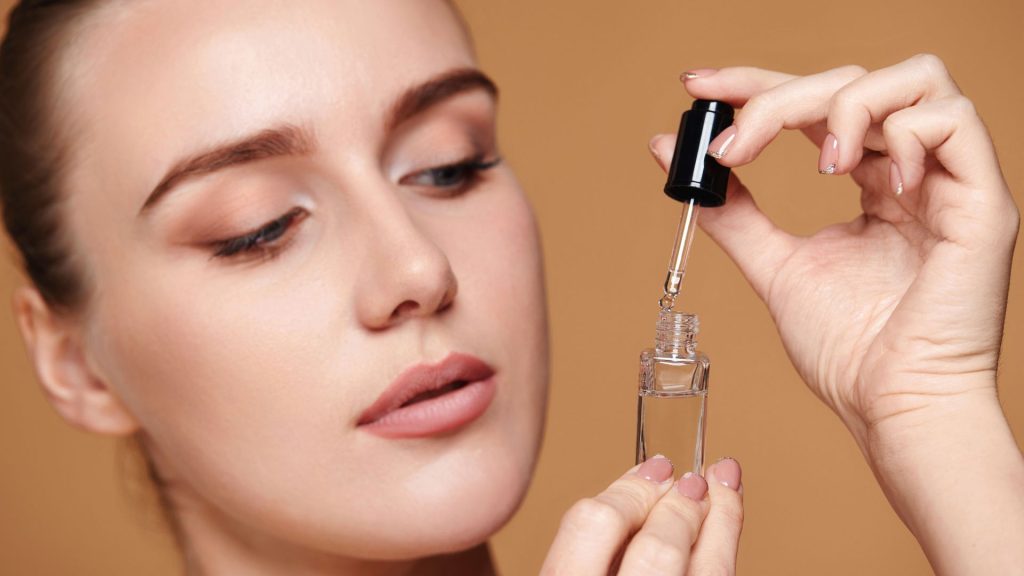Selecting an effective serum can make an immediate and long-term difference to your skin care routine. Serums provide both immediate and long-term visible improvements that enhance complexion.
Plumps, smooths and firms the look of skin while diminishing fine lines and wrinkles. Containing hyaluronic acid that deeply hydrates, it is suitable for all skin types.
Vitamin C
Vitamin C is an incredible ingredient known for its antioxidants, collagen-boosting benefits, and skin brightening abilities. It helps reduce dark spots, fade hyperpigmentation, and give skin an overall youthful look while speeding up its natural healing processes – perfect for anyone seeking to get rid of acne scars or blemishes!
Dr. Wexler recommends adding vitamin C serums to your skin-care routine for maximum effectiveness, since their higher concentration of the ingredient allows it to penetrate more readily into the skin and “make up an ideal solution.”
Choose a serum containing at least 10% L-ascorbic acid; other forms, like magnesium ascorbyl phosphate or ascorbyl palmitate may not be as effective. Additional ingredients like hyaluronic acid or niacinamide may boost benefits while targeting specific skin concerns. Be wary when leaving it exposed to direct sunlight as UV rays may degrade and reduce efficacy over time.
Glycolic Acid
Glycolic acid is one of the smallest alpha hydroxy acids (AHAs), boasting a low molecular weight that allows it to penetrate deeply into skin tissue and provide effective exfoliation, helping slough away dead cells for fresher-looking results.
By stimulating collagen production, this treatment also helps reduce fine lines and wrinkles as well as smooth out roughness to disguise acne scars or surface irregularities, creating more even skin tone.
As glycolic acid can increase sun sensitivity, it should only be applied at nighttime and followed up with sunscreen during the daytime. Consult a dermatologist or skincare expert for tailored guidance tailored specifically for your skin type and concerns, in order to find an appropriate frequency of glycolic acid application and any soothing products which might counteract redness or irritation caused by glycolic acid use.
Hyaluronic Acid
Hyaluronic acid, a water-attracting molecule found throughout the body’s skin, eyes and joints, helps keep tissues lubricated, reduce swelling after surgery and provides anti-ageing benefits such as keeping skin plump and hydrated – up to 1,000 times its weight in water! Furthermore, its anti-wrinkle effects include stimulating collagen production which in turn decreases fine lines and wrinkles.
Choose a serum containing between 0.5% and 2% hyaluronic acid to prevent skin irritation. Also look for one with a lower molecular weight to allow deeper penetration of the skin.
Apply hyaluronic acid serum twice a day in the morning and evening with other hydrating ingredients like ceramides, glycerin and natural oils for optimal hydration. Make sure that the moisturizer you apply will lock in that hydration so it doesn’t evaporate throughout the day or night.
Retinol
Retinol stands out as one of the key anti-ageing ingredients, thanks to its potent Vitamin A-based actives that can reduce fine lines and wrinkles while simultaneously improving dark spots, tone brightness and texture.
Retinol offers other beauty benefits, including minimizing pores, evening skin tone and reducing hyperpigmentation – all while giving skin an overall fresh-faced glow. When selecting the ideal retinol serums for sensitive or dry complexions, look for those featuring time-release technology or encapsulated retinol formulation.
A truly innovative skincare serum, this formula combines 0.2 percent encapsulated retinol, bakuchiol and Pentavitin for an effective yet gentle retinoid experience. Suited for most skin types, its formula will fade fine lines and brighten dark spots within two weeks – pregnant or breastfeeding women should avoid using this ingredient, as its harshness could harm young skin; similarly it should not be used by those suffering sun damage or severe acne conditions.


